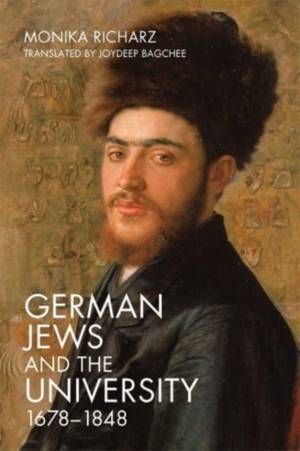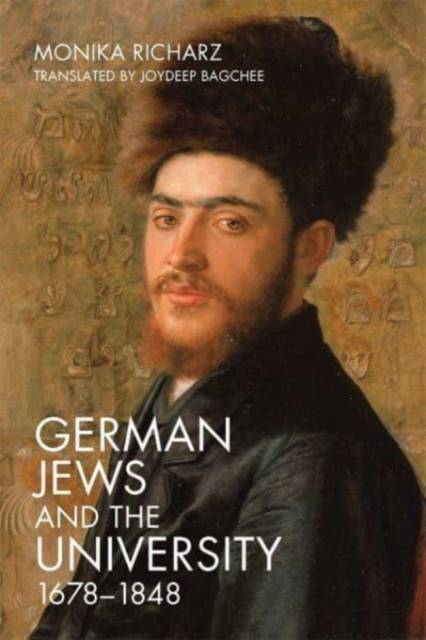
- Afhalen na 1 uur in een winkel met voorraad
- Gratis thuislevering in België vanaf € 30
- Ruim aanbod met 7 miljoen producten
- Afhalen na 1 uur in een winkel met voorraad
- Gratis thuislevering in België vanaf € 30
- Ruim aanbod met 7 miljoen producten
Zoeken
Omschrijving
For centuries Jews in Germany were denied full rights and excluded from gentile society. At the same time, Jewish law restricted scholarship to exegesis of the Talmud. But from the late seventeenth century onward, as German universities progressively opened their doors to them, many Jews turned toward university studies. This process accelerated around 1800 once education (Bildung) assumed a central role for social ascent among the so-called Bildungsbürgertum (cultural bourgeoisie). Many Jews sought to benefit from the professional and social opportunities that university attendance enabled, but they soon discovered that while the state encouraged education as a means of the "moral improvement" of the Jews, it was unwilling to concede them the right to professional careers. Alienated from their ancestral religion and unwilling or unable to return to trading occupations, academized Jews often found themselves leading precarious existences. Many joined the struggle for emancipation or took up the reform of Judaism. Now available in English translation for the first time, Monika Richarz's classic study addresses the far-reaching transformation of German Jewry under the impact of university education. It traces the secularization of Jewish education, the significance of academic education for social assimilation, and the loss of Jewish solidarity with increasing acculturation and emancipation.
Specificaties
Betrokkenen
- Auteur(s):
- Vertaler(s):
- Uitgeverij:
Inhoud
- Aantal bladzijden:
- 304
- Taal:
- Engels
- Reeks:
- Reeksnummer:
- nr. 9
Eigenschappen
- Productcode (EAN):
- 9781640141155
- Verschijningsdatum:
- 14/06/2022
- Uitvoering:
- Hardcover
- Formaat:
- Genaaid
- Afmetingen:
- 152 mm x 229 mm
- Gewicht:
- 621 g

Alleen bij Standaard Boekhandel
+ 418 punten op je klantenkaart van Standaard Boekhandel
Beoordelingen
We publiceren alleen reviews die voldoen aan de voorwaarden voor reviews. Bekijk onze voorwaarden voor reviews.







